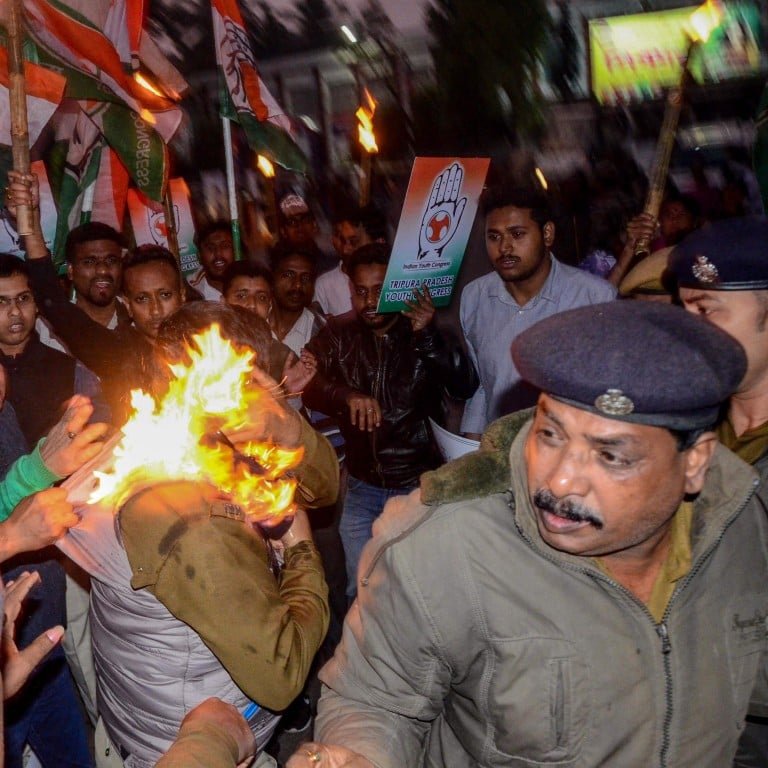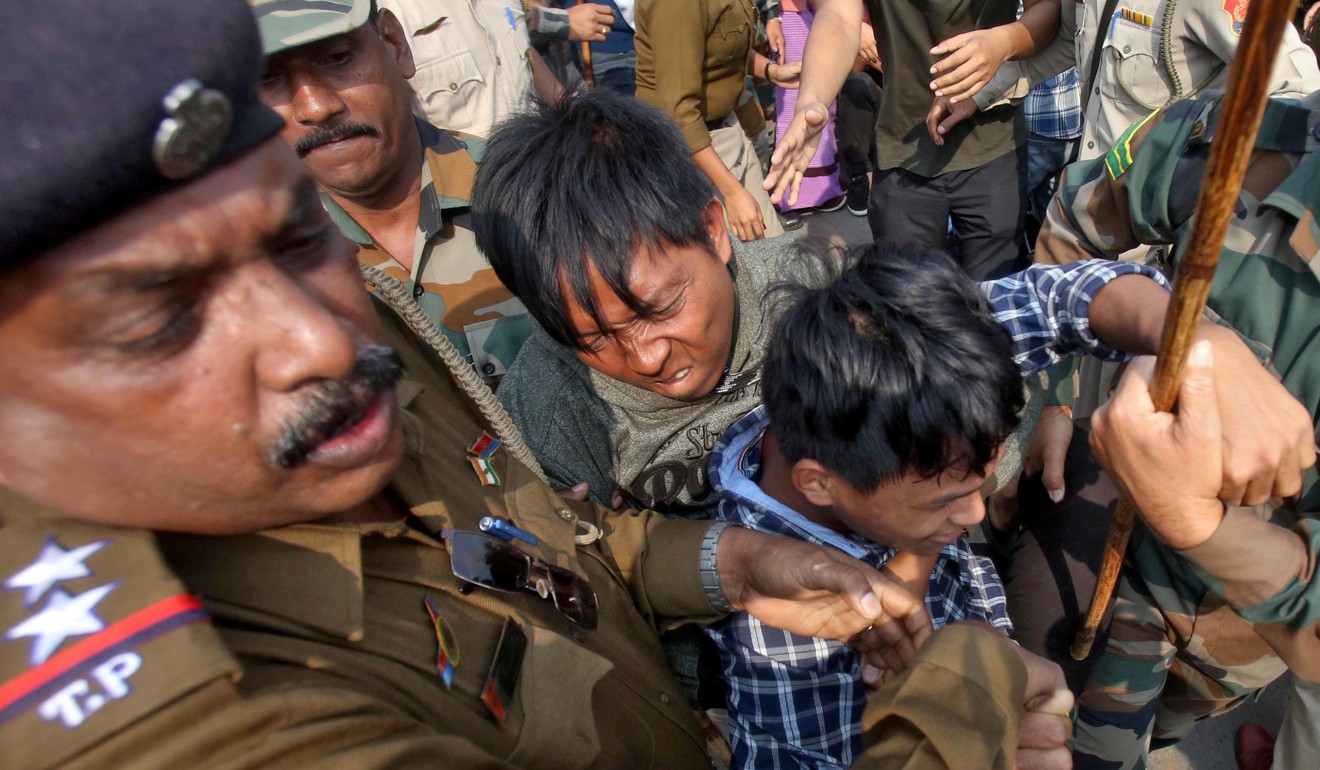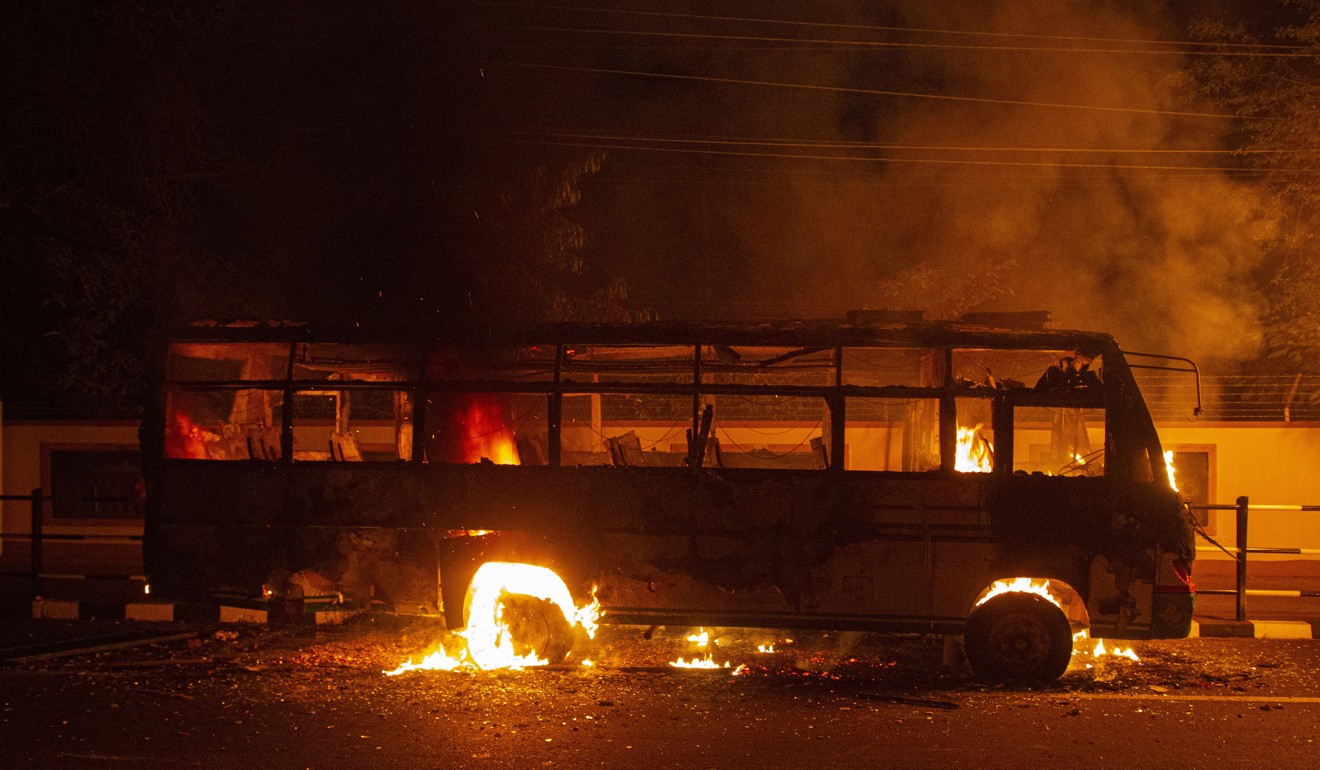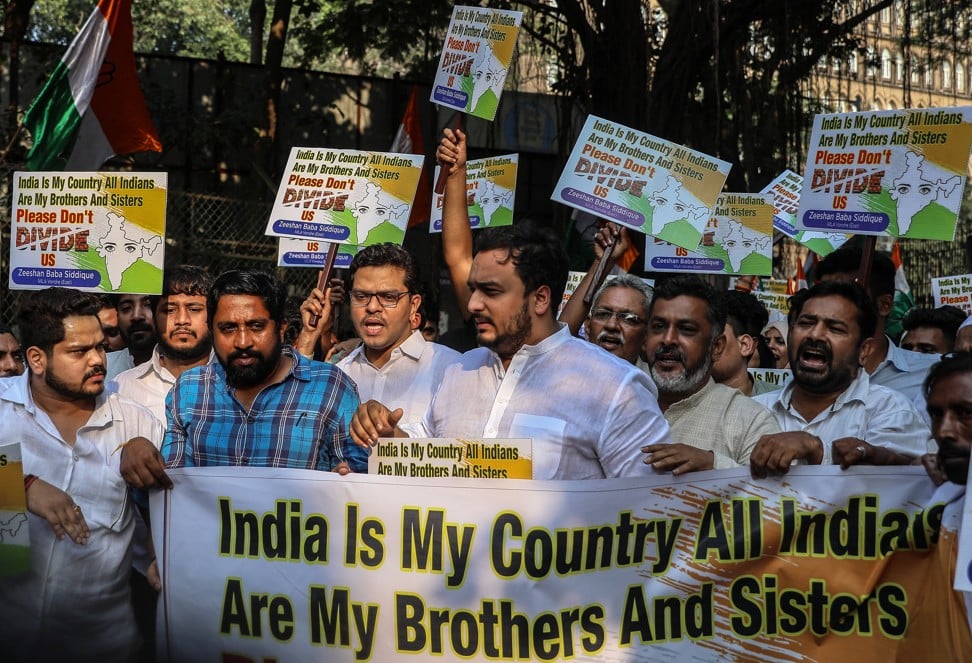
Two dead in India’s Assam as protests over citizenship law turn violent
- Violence broke out after India’s parliament approved the Citizenship Amendment Bill (CAB), which offers amnesty to non-Muslim illegal migrants
- Police in Guwahati fired bullets as protesters demonstrated in the streets, defying a curfew
The Citizenship Amendment Bill (CAB), passed by the upper house on Wednesday, allows for the fast-tracking of citizenship applications from religious minorities from Bangladesh, Pakistan and Afghanistan, but not Muslims.

Police in Guwahati fired bullets and tear gas as groups of protesters, some numbering several hundred, demonstrated in the streets, defying a curfew imposed on Wednesday.
Ramen Talukdar, superintendent of Gauhati Medical College Hospital, said two people had died from gunshot wounds and 11 others injured, also with bullet wounds.
Guwahati’s top police officer Deepak Kumar was removed from his post and replaced over the outbreak of violence, authorities said.
Modi’s new anti-Muslim citizenship law sparks panic, fury in India
All train services to Tripura and Assam were suspended and some flights were cancelled. Several cricket and football matches expected to take place in Assam were called off amid the curfew.
Raveesh Kumar, a spokesman for India’s Foreign Ministry, told reporters that he had no update on whether the summit would go ahead as planned or be held elsewhere.
In Tokyo, the Japanese foreign ministry said it is keeping a close eye on the local security situation in Guwahati, but that it has no plan at the moment to make changes to Abe’s trip.
Modi sought to calm the situation in a series of tweets that many in the region could not read because mobile internet was blocked in some areas.
“I appeal to the northeast, to Assam and every other state – every community there – to assure that their culture, traditions and language will keep getting the respect and support,” he added at a rally at eastern Jharkhand state.
In Chabua, a town bordering an Indian air force base, protesters had torched government property, including a post office, a local police official said.
A mob had also set alight the house of local lawmaker Binod Hazarika, from Modi’s Bharatiya Janata Party (BJP).
Protesters vandalised four railway stations in Assam and tried to set fire to them, a railway spokesman said.
“Assam is not a dustbin so that central government will keep on dumping whoever they want in Assam,” Assamese film actress Barsha Rani Bishaya said.
“People of Assam have woke up against the CAB this time and they will not accept the CAB.”
Several BJP leaders in Assam have also resigned in opposition to the legislation.
Protests over citizenship bill as Muslims fear more persecution
Meanwhile, Bangladesh Foreign Minister A.K. Abdul Momen cancelled a trip to New Delhi hours before he was due to arrive on Thursday, citing domestic engagements.
He had on Wednesday pushed back against the Indian government’s claims the legislation was meant to help those persecuted in Bangladesh, Pakistan and Afghanistan, telling local media his country did not oppress minorities.
It is not yet clear if the legislation, after being signed off by the president, would survive a constitutional challenge in the Supreme Court.
The Indian Union Muslim League filed a petition in the top court, with the political party’s leader saying it was against the basic principles of the country’s constitution.

“The constitution says there will be no differentiation based on caste, religion or anything. Here, the citizenship is being given on the basis of religion,” P.K. Kunhalikutty said.
“The CAB … will not stand in front of the law.”
The petition states that they “do not have any grievances in granting citizenship to migrants but the petitioners grievances is directed against discrimination and unreasonable classification based on religion.”
Amnesty International said the law was “bigoted” and called for it to be immediately repealed.
“In a secular country like India, slamming the door on persecuted Muslims and other communities merely for their faith reeks of fear mongering and bigotry,” the global rights groups said in a statement Wednesday.
“They also run absolutely foul of India’s international obligations.”
Additional reporting by Reuters


